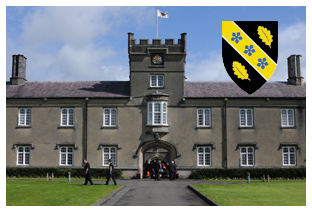Key Concept: The Self in Medieval and Modern Astrology
When:
Saturday 25 Nov, 2017
16.00 - 17.20 GMT
Where: Online via Webex
Click link for manual on
How to join the Webex Seminar RoomFor delegates already attending the postgrad conference, this lecture is included.
Registration: £15:00
Registration is now closed
An Online Event!

An Online Key Concept Seminar from the Sophia Centre
University of Wales Trinity Saint David
Key Concepts in Cultural Astronomy and Astrology
The Self in Medieval and Modern Astrology
Dr Nicholas Campion
What does western astrology claim about the Soul and the Stars?
Does it allow for freedom of choice?
What are the implications for modern astrology?
A central problem of western astrology is whether the entire person, mind, body and spirit, is contained within the birth chart. Or is there something, a Soul, or Self (with a capital S) perhaps, which is not described or determined by the position of the planets at birth? Such considerations have huge implications for how astrologers understand freewill and advise their clients.
Many scholars think that the Self as an autonomous self-directed entity was discovered in the late nineteenth century. But it has a long history in astrology dating back to Plato in the fourth century BCE. This lecture will examine its development in Hermetic thought, where the rational soul was thought to be independent of the planetary daemons, and in early Christian insistence that every person should make a free choice to resist sin. We will look at the crisis of the thirteenth century when it was declared that the soul is absolutely free from direct planetary influence, its legacy in modern astrology in the work of such writers as Dane Rudhyar, and the implications for the practice of astrology.
This Key Concept Lecture draws on material in the MA Cultural Astronomy and Astrology and is a promotion for our new Postgraduate Certificate in the History of Astrology. It will be delivered live as the final session of the annual Sophia Centre postgraduate conference. The lecture will consider both theory and technique and will examine practical examples.

Lecturer: Nicholas Campion is Programme Director of the MA in Cultural Astronomy and Astrology, Director of the Sophia Centre for the Study of Cosmology in Culture and Principal Lecturer in the Faculty of Humanities and the Performing Arts at the University of Wales Trinity Saint David. His recent books include the two-volume History of Western Astrology (London: Bloomsbury 2008/9) and The New Age in the Modern West: Counter-Culture, Utopia and Prophecy from the late Eighteenth Century to the Present Day (London: Bloomsbury 2015).
His edited volumes include Heavenly Discourses, and other recent papers include The Moral Philosophy of Space Travel: A Historical Review, in Jai Galliot (ed.), Commercial Space Exploration: Ethics, Policy, Governance (Abingdon: Ashgate, 2015), pp. 9-22; 'Archaeoastronomy and Calendar Cities' in Daniel Brown (ed.), Modern Archaeoastronomy: From Material Culture to Cosmology, Journal of Physics: Conference Series, Vol. 865, 2016, pp. 1-7; and 'The Imaginal Sky in the Medieval World' in Eric Lacey (ed.), Starcræft. Watching the Heavens in the Middle Ages, Amsterdam: Amsterdam University Press (forthcoming). He is editorial director of the Sophia Centre Press.
About
The Key Concept lectures are part of the Sophia Centre's public outreach programme and draw on material in the University of Wales Trinity Saint David's programme in Cultural Astronomy and Astrology. The programme is distance-learning and online and offers flexible options for study: take one or two modules as an Occasional Student, three modules for a Certificate, six modules for a Diploma and write a 15,000 word dissertation to gain the full MA. For further information e mail the Programme Director, Dr Nicholas Campion.
Welcome to the public outreach page of the Sophia Centre for the Study of Cosmology in Culture at the University of Wales Trinity Saint David, with information about studying with the University, as well as links to related conferences, classes, publications and events. To go straight to the Sophia Centre's University page please go here.
Please follow our guidelines on Netiquette.
Click the link below to join our mailing list to keep informed of Sophia Centre events:
Mailchimp
Upcoming Events
2026
27-29 Apr,
Sophia Centre
conference Istanbul 2026


























